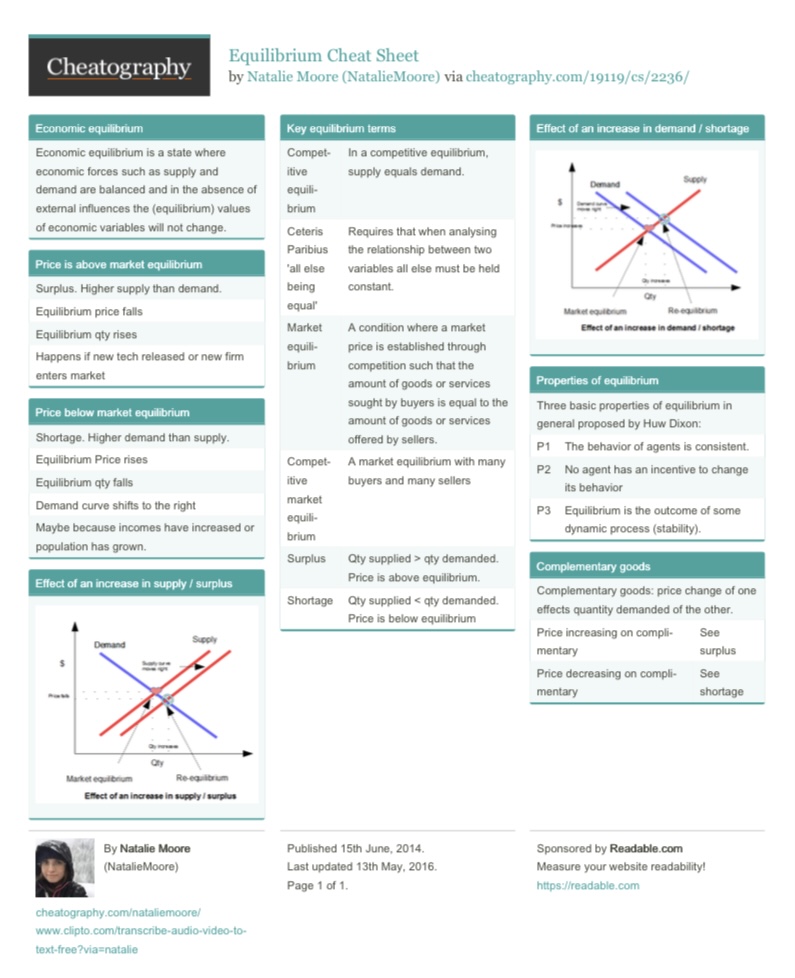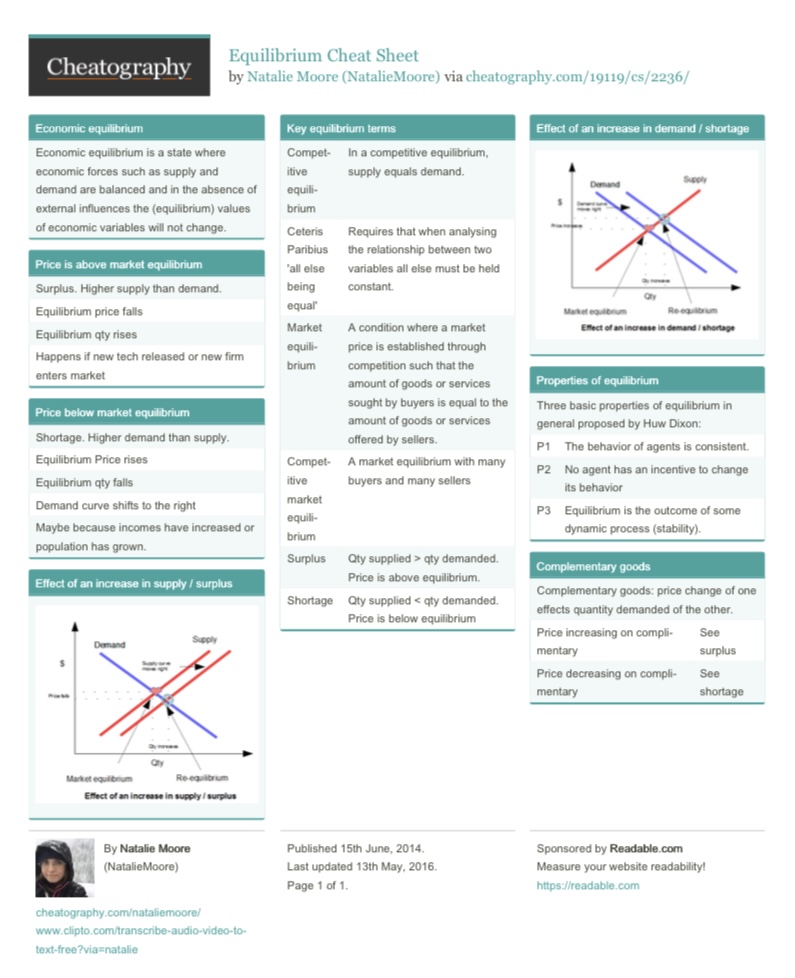Equilibrium
Note Description
Equilibrium refers to a state in which opposing forces or influences are balanced, resulting in stability. In physics, it often describes a situation where the net force acting on an object is zero, leading to no acceleration. In chemistry, chemical equilibrium occurs when the rates of the forward and reverse reactions are equal, causing concentrations of reactants and products to remain constant. In economics, equilibrium can describe a market state where supply equals demand, stabilizing prices. Overall, equilibrium signifies a condition of balance that can apply across various scientific and social disciplines.
...
Notes information
| Seller Price | GHC 0 |
| Added | 16 Aug, 2024 |
| University | KNUST |
| Course | Cheatsheet |


